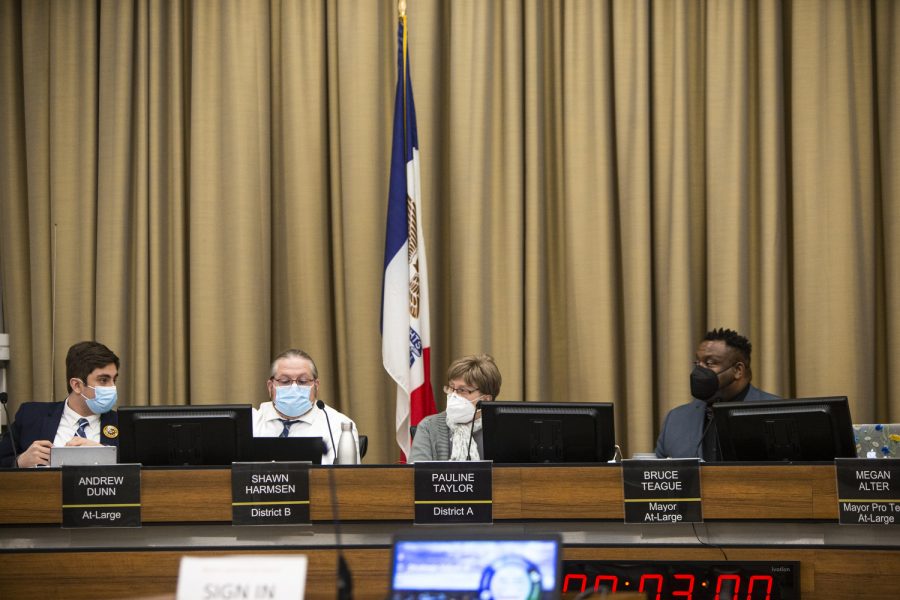Iowa City City Council approves study to identify racial disparities in traffic stops
The Iowa City Police Department and UI Public Policy Center entered an agreement to continue to analyze demographic data trends in traffic enforcement.
City council members communicate during an Iowa City City Council meeting at City Hall on Jan. 24, 2023.
April 19, 2023
The City of Iowa City is advancing a study with the University of Iowa to analyze racial disparities in traffic enforcement following Iowa City City Council approval Tuesday.
Iowa City City Manager Geoff Fruin and Iowa City Police Chief Dustin Liston presented an agreement seeking to work with the UI’s Public Policy Center to continue their research on racially-motivated police traffic stops at the city council meeting Tuesday.
The council unanimously voted in approval of the resolution, which is anticipated to cost nearly $70,000 of the Iowa City Police Department’s operational budget.
“This traffic study will support the department’s continued commitment to eliminating racial profiling, heightening awareness of implicit bias, and building trust and respect between the law enforcement and all communities and persons in Iowa City,” Liston said.
From 2006 to 2020, the Iowa City Police Department partnered with Christopher Barnum, an associate professor of sociology and criminology at St. Ambrose University, to analyze its demographic data on traffic stops. The department published its most recent study in 2021.
RELATED: ICPD, UI seeks approval to study racial disparities for traffic stops
Liston said the police department has used Barnum’s findings in its annual evaluations of individual officers, to improve its training and for the department’s biased-based policing policy.
Ethan Rogers, the UI Public Policy Center’s assistant research scientist, said at the meeting that the new contract will expand upon previous studies by reflecting on what traffic enforcement is and what it has looked like over the past decade.
“Many of the previous proposals are snapshots in the year,” Rogers said. “This is to hopefully give us guidance in terms of where we’ve been and where we’re going in terms of disparities.”
Rogers said the study will apply multiple analytical strategies to determine the best way to assess disparities, which is often debated in the academic community.
“Our hope is to, by showing multiple different strategies, and even within strategies, multiple different approaches, that we can give that comprehensive look,” Rogers said.
Liston said the study will allow the department to continue to keep up with recent trends in identifying disparities in law enforcement.
“Times have changed, certainly over the last couple of years,” Liston said. “Research keeps improving and I think that’s some of the things we’re looking for with the Public Policy Center.”



